REFERENCE ANGLE
Subscribe to our ▶️ YouTube channel 🔴 for the latest videos, updates, and tips.
Let A be an angle in standard position. The reference angle B associated with A is the acute angle formed by the terminal side of A and the x-axis.
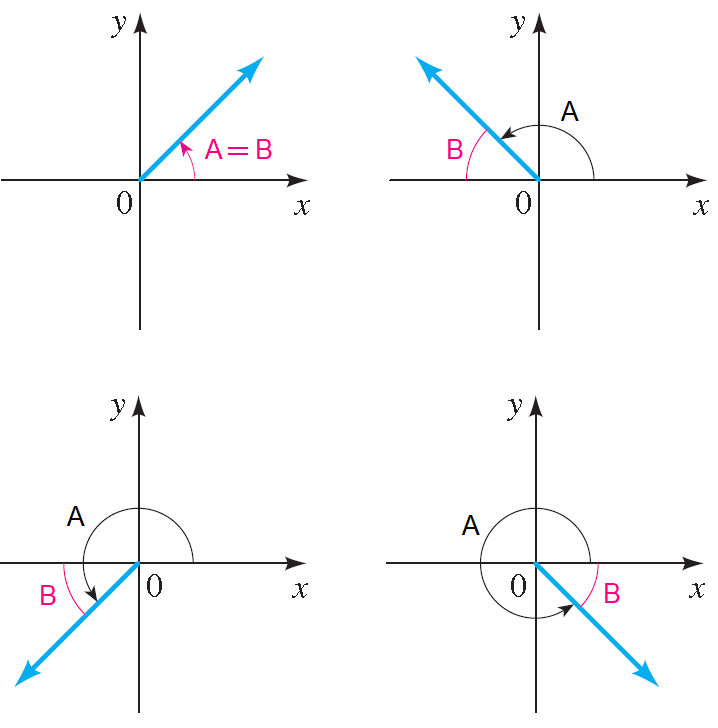
Working Rule to Find Reference Angle
Ensure that the given angle is positive and it is between 0° and 360°.
What if the given angle does not meet the criteria above :
Let θ be the angle given.
Case 1 :
If θ is positive but greater than 360°, find the positive angle between 0° and 360° that is coterminal with θ°.
To get the coterminal angle, divide θ by 360° and take the remainder.
Case 2 :
If θ is negative, add multiples of 360° to θ make the angle as positive such that it is between 0° and 360°.
Once we have the given angle as positive and also it is between 0° and 360°, easily we can find the reference angle as explained below.
Let A be a positive angle such that 0° < A < 360°.
1. When A is in quadrant I,
reference angle = A
2. When A is in quadrant II,
reference angle = π - A or 180° - A
3. When A is in quadrant III,
reference angle = A - π or A - 180°
4. When A is in quadrant IV,
reference angle = 2π - A or 360° - A
Division of Quadrants
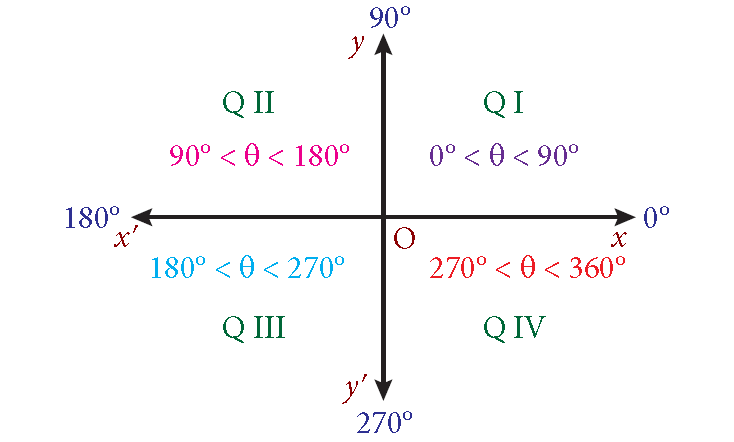
Figures given in the following examples show that to find a reference angle it’s useful to know the quadrant in which the terminal side of the angle lies.
Example 1 :
Find the reference angle for 5π/3.
Solution :
The given angle 5π/3 (or 150°) is less than 2π (or 360°).
The reference angle is the acute angle formed by the terminal side of the angle 5π/3 and the x-axis (see the figure shown below).
The angle 5π/3 has its terminal side in quadrant IV, as shown below.
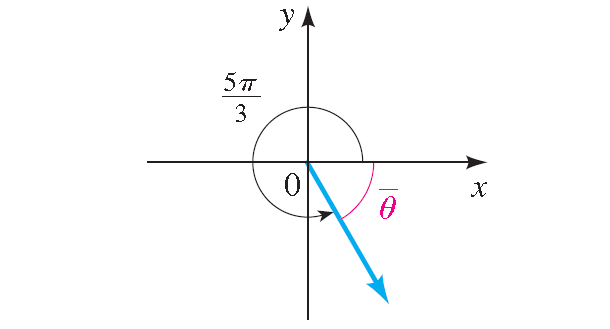
So, the reference angle is
= 2π - 5π/3
= π/3
Example 2 :
Find the reference angle for 240°.
Solution :
The given angle 240° is less than 360°.
The angle 240° has its terminal side in quadrant III, as shown below.
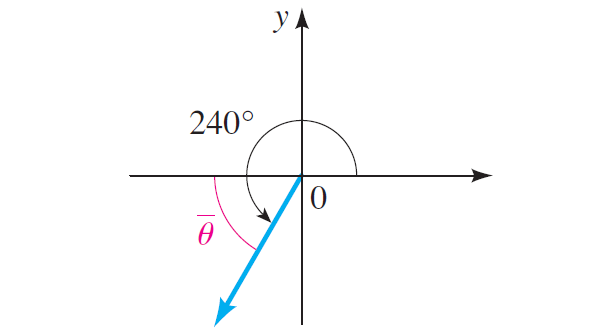
So, the reference angle is
= 240° - 180°
= 60°
Example 3 :
Find the reference angle for 870°.
Solution :
The given angle 870° is greater than 360°.
Find the positive angle between 0° and 360° that is coterminal with 870°.
Divide 870° by 360° and take the remainder.
870° ÷ 360° ---> Remainder = 150°
The positive angle between 0° and 360° that is coterminal with 870° is 150°.
The angle 150° has its terminal side in quadrant III, as shown below.
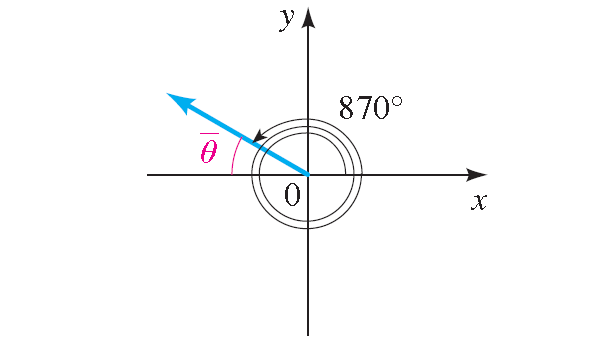
So the reference angle is
= 180° - 150°
= 30°
Example 4 :
Find the reference angle for 8π/3.
Solution :
The given angle 8π/3 is greater than 2π.
Find the positive angle between 0 and 2π that is coterminal with 8π/3.
To make the process easier, convert 8π/3 radians to degrees.
8π/3 = 8(180°)/3 = 480°
Divide 480° by 360° and take the remainder.
480° ÷ 360° ---> Remainder = 120°
The terminal side of the angle 120° is in quadrant II.
120° ⋅ π/180° = 2π/3 radians
So, the reference angle is
= π - 2π/3
= π/3
Example 5 :
Find the reference angle for -135°.
Solution :
The given angle -135° is negative.
Add multiples of 360° to -135° to make the angle as positive such that it is between 0° and 360°.
-135° + 360° = 225°
225° is positive and less than 360°.
The terminal side of the angle 225° is in quadrant III.
So, the reference angle is
= 225° - 180°
= 45°
Example 6 :
Find the reference angle for -13π/4.
Solution :
The given angle -13π/4 is negative.
Add multiples of 2π to -13π/4 to make the angle as positive such that it is between 0 and 2π.
-13π/4 + 2(2π) = -13π/4 + 4π = 3π/4
3π/4 is positive and less than 2π.
The terminal side of the angle 3π/4 (or 135°) is in quadrant II.
So, the reference angle is
= π - 3π/4
= π/4
Subscribe to our ▶️ YouTube channel 🔴 for the latest videos, updates, and tips.
Kindly mail your feedback to v4formath@gmail.com
We always appreciate your feedback.
About Us | Contact Us | Privacy Policy
©All rights reserved. onlinemath4all.com

Recent Articles
-
Mastering the SAT Math
Feb 11, 26 06:19 AM
Mastering the SAT Math -
Simplifying Square Roots Worksheet
Feb 10, 26 07:29 AM
Simplifying Square Roots Worksheet -
Simplifying Square Roots
Feb 10, 26 07:26 AM
Simplifying Square Roots - Concept - Solved Questions

